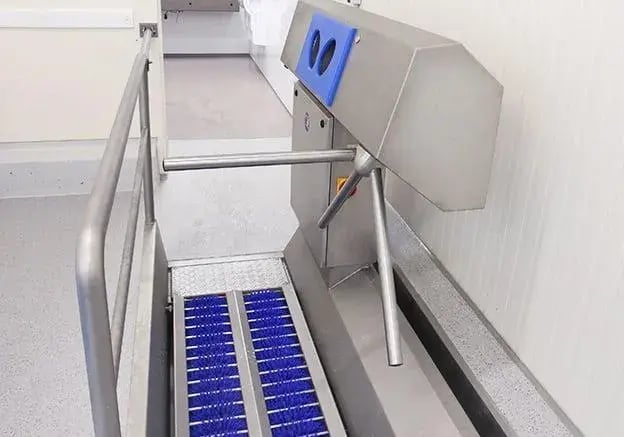Don't take the risk - invest in a new hygiene lock

“Cheap is expensive” is usually the case, certainly when it comes to investing in safety. A hygiene lock is an important application in the food industry and must function properly at all times. After all, you always want to be able to comply with the European directives regarding HACCP.
Second-hand hygiene locks
We are regularly asked whether a second-hand hygiene lock is a good alternative to a brand new one. And what we also sometimes find is that people call us to ask whether we can supply something on the spot because a second-hand hygiene lock has failed. The supply is there, not because demand is high, but because companies that buy a new lock hope that another company will be able to use the old one. This is perfectly understandable, because it’s a shame to write off a lock that works reasonably well.
So why not do it?
Before we explain why it isn’t necessary to purchase a second-hand hygiene lock, we will first look at why companies do. The only reason relevant here is the financial aspect: a second-hand unit simply costs less than a new one. In the short term, that is.... which immediately brings us to the first reason for purchasing a new hygiene lock:
1. Long-term investment
A hygiene lock is an important investment, both for your wallet and in the positive contribution it makes to food safety in your company. A new lock meets the latest standards, not only in terms of safety but also in terms of engineering and materials. In the long term, you will pay less for your new model because it is more durable and lasts much longer.
2. Warranty and replacement
Your entire production chain depends on the hygiene lock. After all, you have to comply with the legal requirements for the HACCP. If you are unable to comply with them because your hygiene lock has defects, production will be halted. A new lock will be much less prone to defects than a second-hand one. In addition, you can contact the supplier directly and are entitled to a warranty in the form of repair or replacement.
3. Sustainability
Energy efficiency is important, you save money and have less of an impact on the environment. Many companies have a certain standard of sustainability. Hygiene locks are developed by a team of engineers and technicians with user-friendliness and sustainability in mind. The older a lock, such as a second-hand one, the more likely you are to save on having to purchase a new one, but will have to spend extra every month on energy costs.
4. Personal advice
A customised solution contributes to food safety. The better the hygiene lock is built into your company’s flow, the greater the chance that your employees will use it correctly. Experts know what it takes to get the solutions to work for you. There is also a helpdesk at your disposal to answer any questions you may have.
More information?
Do you want more information about personal hygiene, in particular with regard to HACCP and hygiene locks? Then download our handy white paper: ‘Personal hygiene within HACCP’, in which we tell you all there is to know about it.
.webp)






